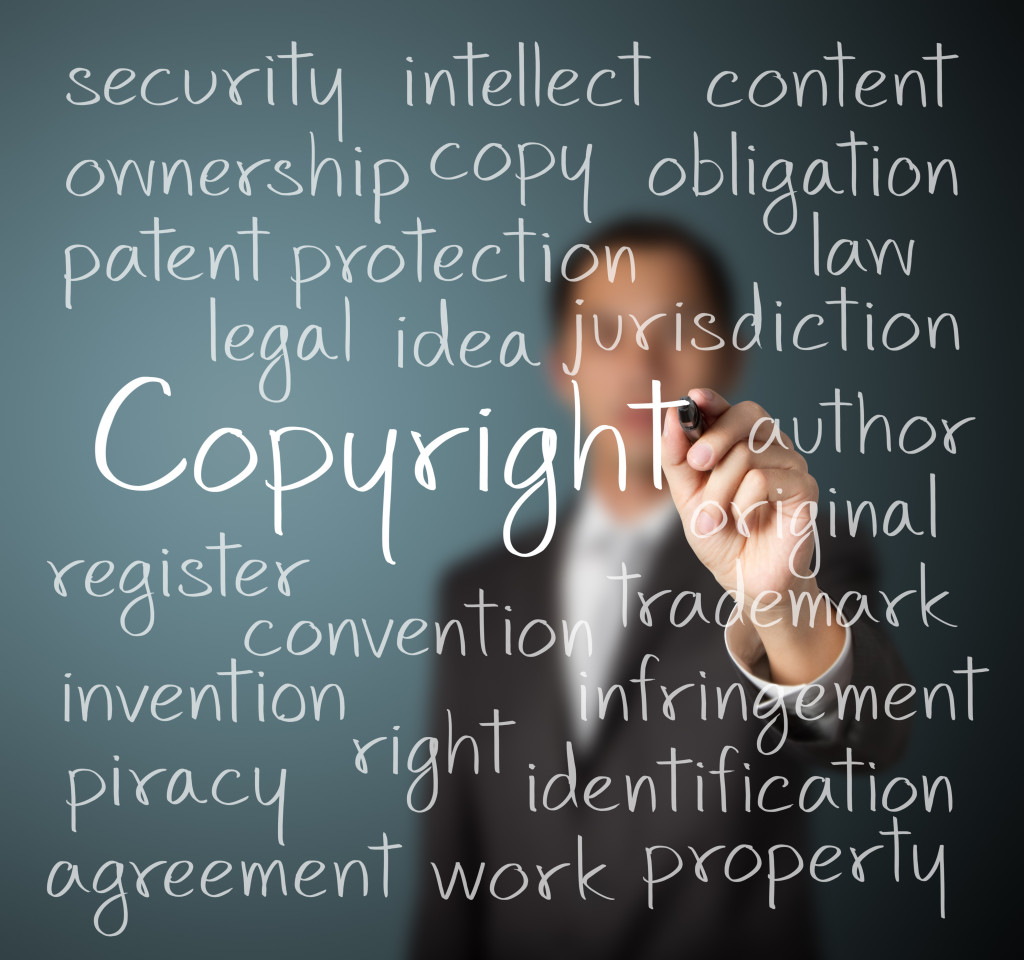• Copyrights and trademarks are essentially legal protections for businesses to establish their unique brand identity.
• A copyright grants exclusive rights to the creator of an original work for a fixed period, such as music, literature, visual arts, or architectural designs.
• On the other hand, trademarks refer to words, symbols, logos, or slogans used to identify products or services sold by a business.
• Registering your copyright and trademark can provide extra protection for your creative works and help differentiate them from competitors.
• It is important to be aware of fair use exceptions when using copyrighted material without permission, as well as doing research on existing copyrights and trademarks in a similar field.
As you build your business, it’s essential to understand the legal implications of copyrights and trademarks. These regulations are in place to protect the intellectual property of companies, allowing them to establish their own unique brand identity. Knowing how copyright and trademark laws affect your business will help you avoid costly legal issues.
What is a Copyright?
A copyright is a form of intellectual property protection that grants exclusive rights to the creator or owner of original works. This includes literary works such as novels, plays, music, articles, software code; visual arts like photographs and paintings; sound recordings; and even architectural designs.
A copyright is granted for a fixed period, typically between 50-100 years after the creator’s death, though this varies by country. During this time, no one else can reproduce or distribute these works without express written permission from the owner or creator.

What is a Trademark?
A trademark is also a form of intellectual property protection that covers words, symbols, logos, slogans, or any combination used to identify products or services sold by a specific business.
When you register your trademark with a government agency like the United States Patent & Trademark Office (USPTO), you obtain exclusive rights to use that mark on any goods or services you offer. This helps customers distinguish between those goods or services provided by other companies—and it helps protect your brand’s reputation from infringement or misuse by competitors.
How Do Copyrights and Trademarks Affect My Business?
Understanding copyright and trademark laws can help ensure that your business doesn’t infringe upon any existing intellectual property rights held by other companies—or risk being sued for infringement due to unauthorized use of someone else’s work.
Similarly, registering for copyrights and trademarks can provide an extra layer of protection for your creative works and brand identity—keeping others from using them without permission or compensation.
Additionally, many countries have “fair use” exceptions that allow limited use of copyrighted material without infringing on another person’s rights—though these can be difficult to navigate without proper legal counsel.
Tips to Avoid These Legal Problems
When building your business, find it essential to understand how copyrights and trademarks affect your company’s identity. Understanding copyright laws allow you to ensure you are not infringing upon any existing intellectual property held by another party. However, you can also follow some general tips, so your business doesn’t go through these problems. Here are some of those tips:

Find a Good Attorney
Having a good attorney can help you avoid these legal problems down the line, especially if you’re a business in the field of media. You need to search for an experienced intellectual property attorney if you want to cover all the legal aspects of your business. They can be a consultant regarding some products you’ve made, and they can also help you protect your business from pirates.
Do Your Research
Make sure you know what is already copyrighted before using a logo, slogan, or other content that could be considered intellectual property. You can use search engines and the USPTO website to look for existing copyrights and trademarks in a similar field.
Use Creative Commons Licenses
Creative Commons licenses are a great way to safely use other people’s work without infringing on their rights. This license allows authors to outline how others may use their work, including if it’s free for commercial or non-commercial use, whether modifications are allowed, and more.
Be Careful When Hiring
When hiring freelancers or contractors to help build your business, be sure to have them sign a contract that outlines their responsibilities and liabilities regarding copyright infringement. This will protect you from being held responsible for any IP theft issues down the line.
These are just a few tips for avoiding potential legal problems related to copyrights and trademarks in your business. If you need more information on these topics, consider researching the laws surrounding intellectual property. Doing so can help ensure that your company stays compliant with applicable regulations—and avoids costly legal issues in the future.

